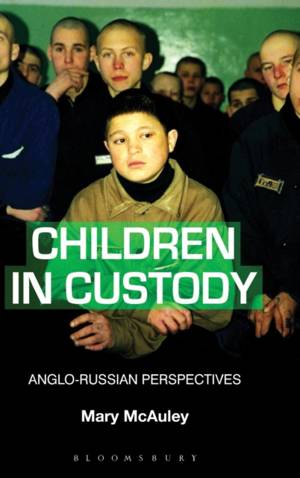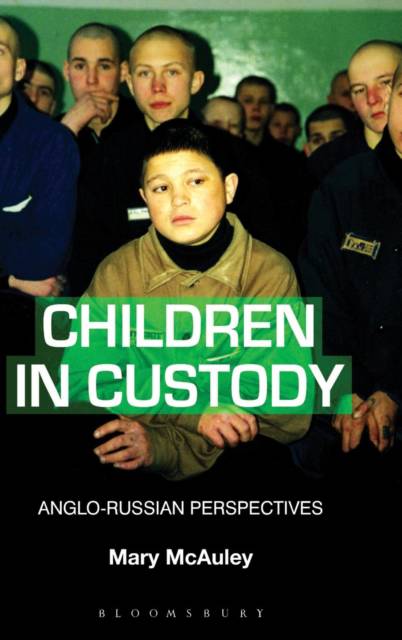
Je cadeautjes zeker op tijd in huis hebben voor de feestdagen? Kom langs in onze winkels en vind het perfecte geschenk!
- Afhalen na 1 uur in een winkel met voorraad
- Gratis thuislevering in België vanaf € 30
- Ruim aanbod met 7 miljoen producten
Je cadeautjes zeker op tijd in huis hebben voor de feestdagen? Kom langs in onze winkels en vind het perfecte geschenk!
- Afhalen na 1 uur in een winkel met voorraad
- Gratis thuislevering in België vanaf € 30
- Ruim aanbod met 7 miljoen producten
Zoeken
€ 228,95
+ 457 punten
Omschrijving
Despite their very different histories, societies, political and legal systems, Russia and the UK stand out as favouring a punitive approach to young law breakers, imprisoning many more children than any other European countries. The book is based on the author's primary research in Russia in which she visited a dozen closed institutions from St Petersburg to Krasnoyarsk and on similar research in England and Northern Ireland.
The result is a unique study of how attitudes to youth crime and criminal justice, the political environment and the relationship between state and society have interacted to influence the treatment of young offenders. McAuley's account of the twists and turns in policy towards youth illuminate the extraordinary history of Russia in the twentieth century and the making of social policy in Russia today.
It is also the first study to compare the UK (excluding Scotland because of its separate juvenile justice system) with Russia, a comparison which highlights the factors responsible for the making of 'punitive' policy in the two societies. McAuley places the Russian and UK policies in a European context, aiming to reveal how other European countries manage to put so many fewer children behind bars.
The result is a unique study of how attitudes to youth crime and criminal justice, the political environment and the relationship between state and society have interacted to influence the treatment of young offenders. McAuley's account of the twists and turns in policy towards youth illuminate the extraordinary history of Russia in the twentieth century and the making of social policy in Russia today.
It is also the first study to compare the UK (excluding Scotland because of its separate juvenile justice system) with Russia, a comparison which highlights the factors responsible for the making of 'punitive' policy in the two societies. McAuley places the Russian and UK policies in a European context, aiming to reveal how other European countries manage to put so many fewer children behind bars.
Specificaties
Betrokkenen
- Auteur(s):
- Uitgeverij:
Inhoud
- Aantal bladzijden:
- 272
- Taal:
- Engels
Eigenschappen
- Productcode (EAN):
- 9781849660006
- Verschijningsdatum:
- 1/02/2010
- Uitvoering:
- Hardcover
- Formaat:
- Genaaid
- Afmetingen:
- 137 mm x 218 mm
- Gewicht:
- 430 g

Alleen bij Standaard Boekhandel
+ 457 punten op je klantenkaart van Standaard Boekhandel
Beoordelingen
We publiceren alleen reviews die voldoen aan de voorwaarden voor reviews. Bekijk onze voorwaarden voor reviews.









